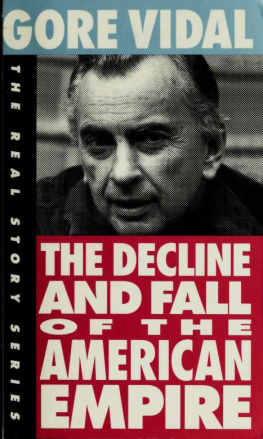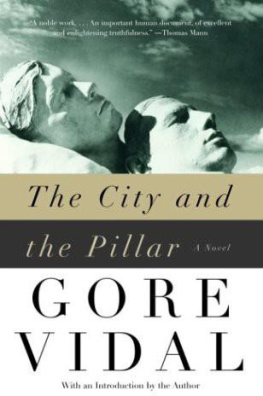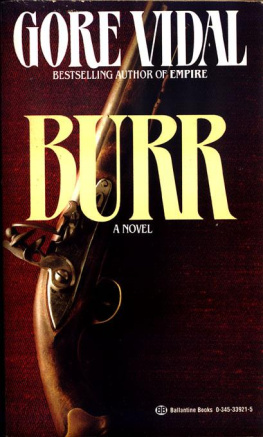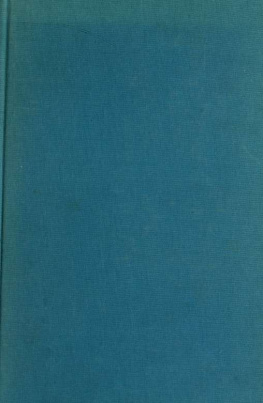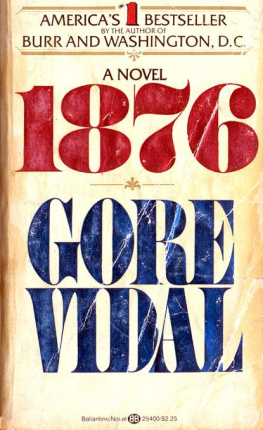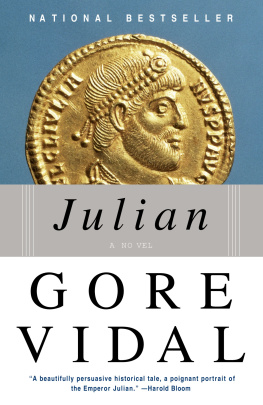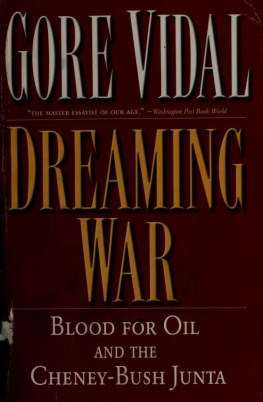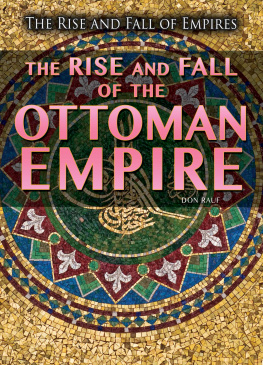This book made available by the Internet Archive.
The Decline and Fall of the American Empire
Gore Vidal
Gore Vidal is the author of 22 novels, five plays and countless essays, articles and reviews (see page 90 for a list of them). The grandson of Thomas Pryor Gore, the populist senator from Oklahoma, he was born in 1925 at West Point, where his father was an aeronautics instructor. Vidal wrote his first novel at the age of 19 and was widely hailed as a boy genius. Many of his subsequent novels have been number-one best-sellers.
In addition to his literary career, Vidal has twice run for office. In 1960, he was a candidate for Congress in upstate New York, where he got the most votes in his district of any Democrat in half a century. Running for the US Senate in the 1982 Democratic primary in California, he received half a million votes and finished second in a field of nine.
In 1982, Vidal won an American Book Critics Circle Award for his collection of essays, The Second American Revolution. The Washington Post has said of him, "I can't think of another writer more certain to have exactly the right opinion on absolutely everything."
Editors 9 Note
We've occasionally added brief explanatory comments or footnotes in square brackets. If you don't need them, please just ignore them other readers may find them helpful.
Core Vidal
Preface
Four of these pieces on the theme of empire versus republic began as speeches. Two were given at the National Press Club in Washington (they did not go over awfully well, as you might guess, but C-Span viewers were more pleased than not). One was given to raise money for PEN in New York; the last was the Lowell Lecture at Harvard in April of this year. All six were published in The Nation.
Essentially, I am trying to put into historical perspective the state of our union and what can still be done to salvage it. Curiously, I have had rather more effect on the presidential campaign of 1992 than I had ever dared hope. During the New Hampshire primary, Jerry Brown rang me. We had not met since our last unfriendly encounter ten years earlier when I ran against him in the Democratic primary for the Senate in California.
He had just read "Time for a People's Convention." He was excited by it. Taking America back. The concept of We the People as sole legitimate sovereign. Bringing out in the open the Ownership of the country, and so on.
Brown said he would be using a lot of what I'd been writing and saying, and I gave him my blessing. Would I come to New Hampshire and help out? No thanks, I said, but I
The Decline and Fall of the American Empire
would send him notes from time to time, which I did.
The most effective was my suggestion that he find a defense plant where he could then dramatize the necessity of converting from war to peace. He found the occasion in Connecticut. The Seawolf submarine had been cancelled by Bush. Workers would be out of a job. Clinton had promised to build more Seawolves. Jerry said, No. With the same work force and technology you must build bullet trains.
I got a call at five in the morning from Pat Cadell, saying we had won Connecticut. Now Clinton is appropriating a lot of the Brown-Vidal rhetoric. Whether or not he has grasped the substance we shall see when he is elected. I doubt it, but who knows?
Gore Vidal
The Day the American Empire Ran Out of Gas
On September 16, 1985, when the Commerce Department announced that the United States had become a debtor nation, the American Empire died. The empire was seventy-one years old and had been in ill health since 1968. Like most modern empires, ours rested not so much on military prowess as on economic primacy.*
After the French Revolution, the world money power shifted from Paris to London. For three generations, the British maintained an old-fashioned colonial empire, as well as a modern empire based on London's primacy in the money markets. Then, in 1914, New York replaced London as the world's financial capital.
Before 1914, the United States had been a developing country, dependent on outside investment. But with the shift of the money power from Old World to New, what had been a debtor nation became a creditor nation and central motor to the world's economy.
In The Guardian Frank Kermode wrote: "I happened to hear Vidal expound this thesis in a New York theater, to a highly ribald and incredulous, though doubtless very ignorant audience...." Since then, my thesis has been repeated by others so many times that it is now conventional wisdom.
The Decline and Fall of the American Empire
All in all, the English were well pleased to have us take their place. They were too few in number for so big a task. As early as the turn of the century, they were eager for us not only to help them out financially but to continue, in their behalf, the destiny of the Anglo-Saxon race: to bear with courage the white man's burden, as Rudyard Kipling not so tactfully put it.
Were we notEnglish and Americansall Anglo-Saxons, united by common blood, laws, language? Well, no, we were not. But our differences were not so apparent then. In any case, we took on the job. We would supervise and civilize the lesser breeds. We would make money.
By the end of the Second World War, we were the most powerful and least damaged of the great nations. We also had most of the money. America's hegemony lasted exactly five years. Then the cold and hot wars began.
Our masters would have us believe that all our problems are the fault of the Evil Empire of the East, with its satanic and atheistic religion, ever ready to destroy us in the night. This nonsense began at a time when we had atomic weapons and the Russians did not. They had lost twenty million of their people in the war, and eight million of them before the war, thanks to their neoconservative Mongolian political system. Most important, there was
Core Vidal
never any chance, then or now, of the money power shifting from New York to Moscow.
What wasand isthe reason for the big scare? Well, the Second War made prosperous the United States, which had been undergoing a depression for a dozen years, and made very rich those magnates and their managers who govern the republic, with many a wink, in the people's name. In order to maintain a general prosperity (and enormous wealth for the few), they decided that we would become the world's policeman, perennial shield against the Mongol hordes.
We shall have an arms race, said one of the high priests, John Foster Dulles, and we shall win it because the Russians will go broke first. We were then put on a permanent wartime economy, which is why close to 90% of the government's revenues are constantly being siphoned off to pay for what is euphemistically called defense.*
As early as 1950, Albert Einstein understood the nature of the rip-off. He said, 'The men who possess real power in this country have no intention of ending the cold war." Thirty-five years later, they are still at it, making money while the nation itself declines to eleventh place in world per capita income, to forty-sixth in literacy and so on, until last

